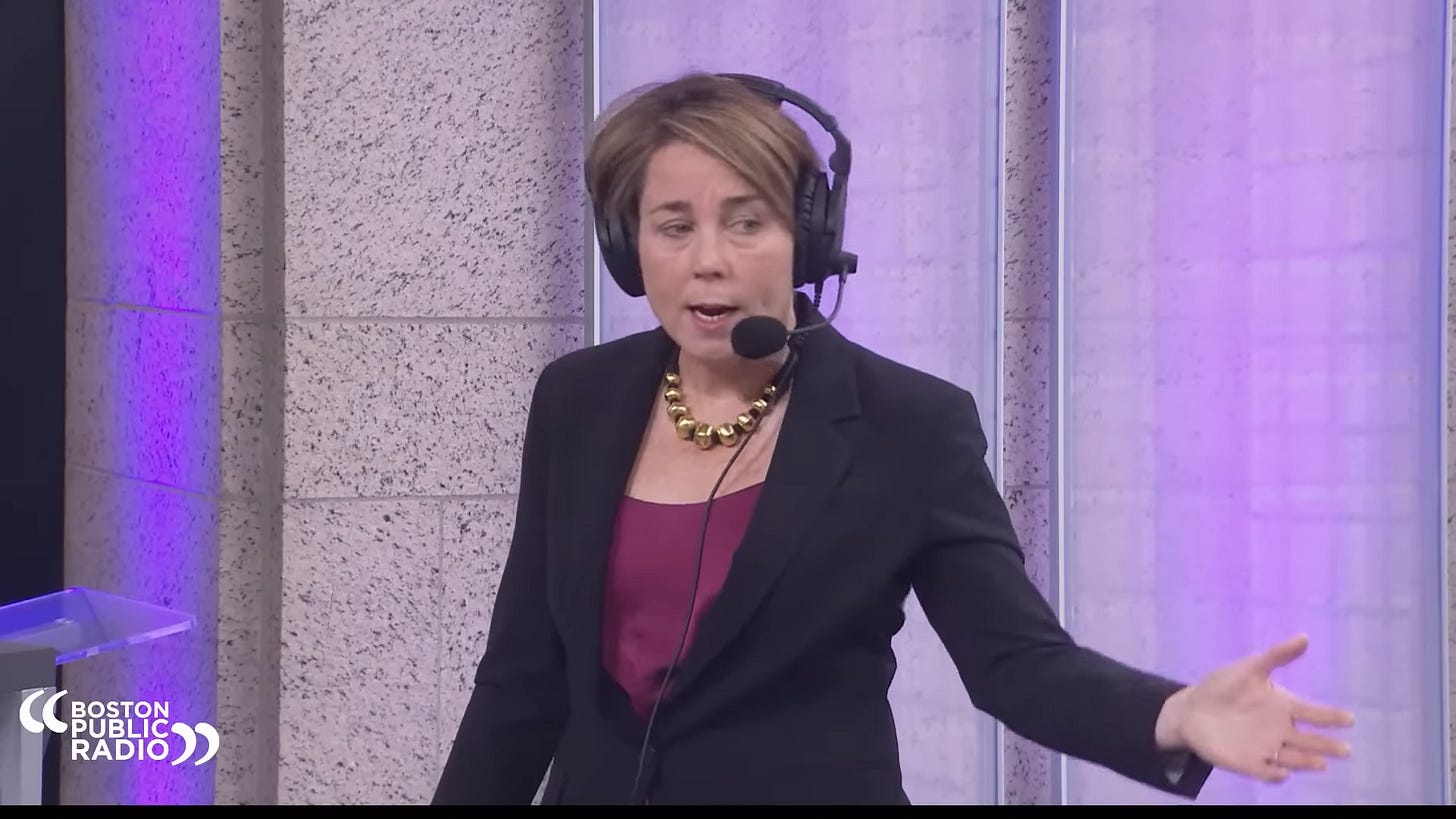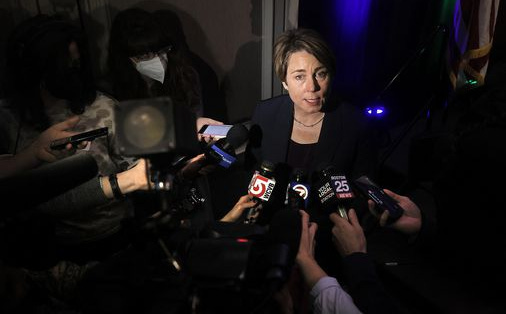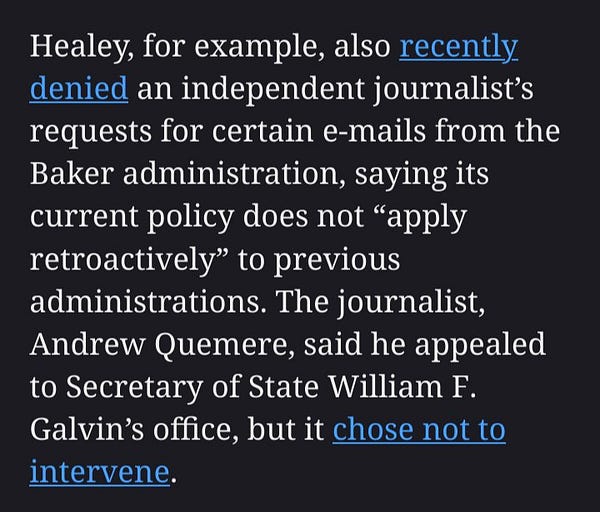Healey refuses to release emails and other public records to Boston Globe
Healey administration claims providing basic records would “interfere” with governor’s “responsibilities”

If you’ve been reading this newsletter recently, then you already know that Massachusetts Governor Maura Healey reneged on a promise to comply with public records requests shortly after she took office.
In December, just two weeks before her inauguration, she told GBH that she would not claim her office was exempt from the public records law. But she quickly reversed herself, issuing a policy that cites the Supreme Judicial Court’s 1997 Lambert decision, which previous governors have invoked to claim immunity from the law.
On Monday, the Boston Globe published a story about Healey refusing to release basic documents that cities, towns, and state agencies are required to disclose.


Globe reporters Samantha J. Gross and Matt Stout “requested correspondences between Healey and legislative leaders, the governor’s daily calendar, a log of her travel, and a log of calls she made or received on her cellphone or direct office line for January.”
Here’s how the Healey administration responded:
Healey’s office denied access to her e-mails and phone call logs. Instead of claiming an exemption laid out in state law, Healey’s office offered a unique argument that providing these documents “would interfere with the governor’s necessary, regular activities and responsibilities and, as a consequence, unreasonably hinder the governor in effectively performing her duties.”
Healey’s office did release copies of her daily calendar, but redacted details from more than four dozen entries, including what appear to be meeting locations.
Here’s how the Healey administration justified its response:
Jillian Fennimore, a Healey spokeswoman, defended the governor’s approach, saying Healey has chosen to provide records, and more transparency, instead of claiming a complete exemption. She said the office is being guided by public records law, but argued that there may be situations that the law does not “adequately address.”
“Governor Healey has been clear that her office intends to comply with the public records law and provide more transparency than previous administrations,” Fennimore said.
This, of course, is preposterous. Choosing on a case-by-case basis which requests to honor and which to disregard is not how the public records law works. The Healey administration is not being more transparent than past administrations — it’s behaving in exactly the same way.
Healey’s behavior is even more galling than that of past governors because, unlike them, she promised right before taking office to not do precisely what she is now doing. Going back on her word so readily shows a lack of integrity and a lack of respect for her constituents.
According to the Globe, the administration redacted Healey’s calendar entries under an exemption to the public records law that protects documents like blueprints and schematics related to security measures. The administration is definitely misusing this exemption — there’s no reason it would apply to the location of the pizza party Healey held for her staff in January, an example highlighted in the Globe story.
However, it piqued my interest that the administration chose to rely on an exemption in the public records law to justify redacting the calendar rather than just saying Healey can do whatever she wants because of the Lambert decision.
I recently reported that Supervisor of Public Records Manza Arthur — the state’s public records watchdog who is appointed by the secretary of the commonwealth — declined to assist me when the Healey administration refused to provide records from the Charlie Baker administration.
Debra O’Malley, the communications director for Secretary of the Commonwealth William F. Galvin, said that Arthur had no choice because the Healey administration invoked Lambert when responding to me.
But if the Globe appeals to Arthur, she might respond differently — at least with respect to the issue of the redactions made to the calendars. In this case, the supervisor might reach a decision about whether or not the security exemption is applicable since the Healey administration didn’t claim the records were totally exempt under Lambert.
If the supervisor does side with the Globe, it will be instructive to see how the Healey administration responds. The supervisor cannot enforce her orders in court, so agencies dispute or flat-out ignore them all the time. Healey press secretary Karissa Hand has declined to say whether the governor is committed to complying with the supervisor’s orders.
When agencies refuse to comply with the supervisor, she must rely on the attorney general’s office for enforcement. If the Healey administration chooses not to comply with the supervisor, it will be interesting to see whether the supervisor refers the matter to the attorney general’s office or just drops it.
If she does refer an order, it will be even more interesting to see what the attorney general’s office — which is now headed by the newly inaugurated Andrea Campbell — does with it.
If you’d like to read more reporting like this, please consider supporting my work financially, either by signing up for a paid subscription to this newsletter or sending me a tip via PayPal.
If you have any story ideas, let me know about them! You can email me at aquemere0@gmail.com or send me a direct message on Twitter or Mastodon.
That’s all for now.




